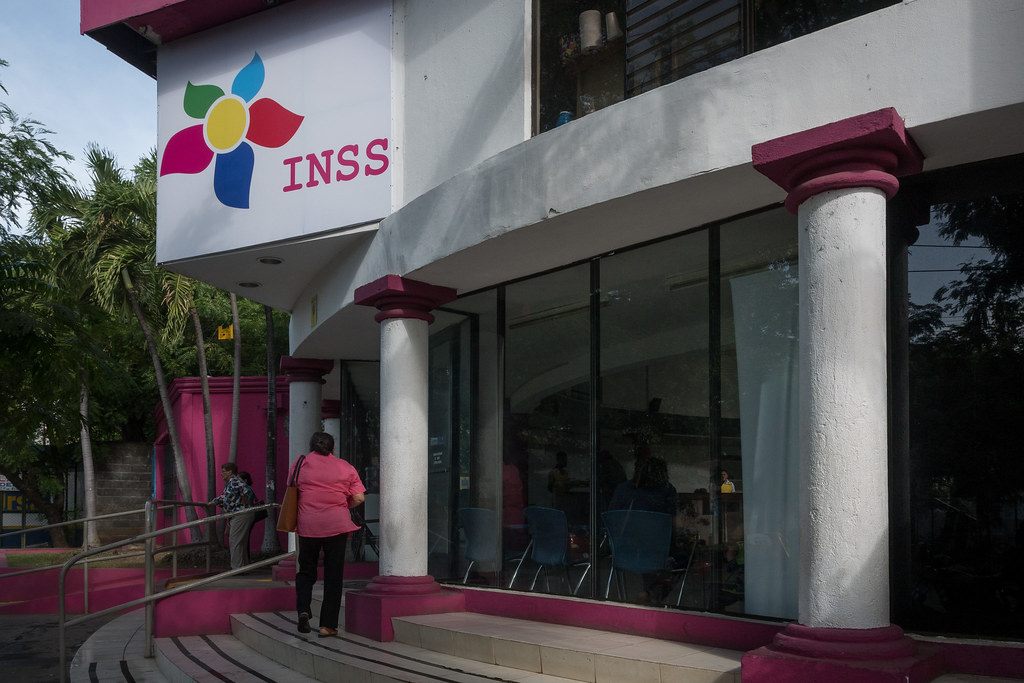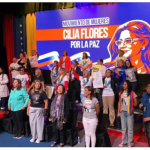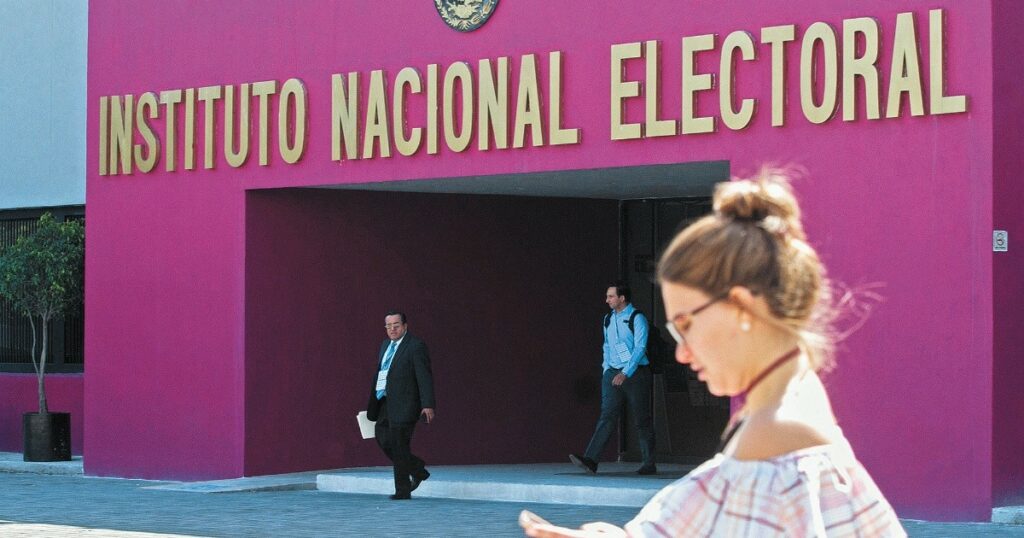The Government of Daniel Ortega and Rosario Murillo began to cancel the records of the insured in the Nicaraguan Institute of Social Security (INSS), to carry out the illegal confiscation of their old-age pensions, as of February 20, they confirmed to CONFIDENTIAL ten of those affected, who were stripped of their nationality on February 9 and 15.
A source linked to social security explained that within the Institute, the executive president of the INSS, Roberto López, ordered the execution of the measure, after analyzing the supposed legal support that they could use, as a result of the declaration of “stateless” , and once that was defined, “it was decided that they were going to take away” their pensions.
The exile of 222 former political prisonerswhich took place on February 9, to which was added the declaration of “stateless” and fugitives from justice to another 94 Nicaraguan citizens on the 15th, led to the unconstitutional decision to confiscate their assets and make them disappear from any public record.
The first blow was the immobilization in the Property Registry of the properties of those affected with “annotations” that paralyze the possibility of carrying out transactions, as a measure prior to the confiscation. The second blow was executed when the dates on which pension payments for retirees were usually deposited arrived, between February 19 and 21.
Four of them – the former Minister of Education, Humberto Belli; the former member of the Government Junta for National Reconstruction, Moisés Hassán; the former director of foreign relations of the FSLN, Julio López Campos, and his wife, the former guerrilla Mónica Baltodano, confirmed to CONFIDENTIAL that this month they were no longer able to access their payments.
The decision was considered “abominable, infamous, inhumane” by the lawyer and defender of Human Rights, Gonzalo Carrión, whose name was included in the group of 94, while Belli considered it “a robbery”, and López Campos classified it as “rogue, brutality, and contempt for human rights.”
system wipes
The testimony of former minister Belli indicates that he has been a pensioner since the first decade of this century and that, when he left the country in June 2021, he left a signed power of attorney for someone he trusted to cash his check in the city of León, but that When trying to do it in this month of February, the person received the answer that “Mr. Belli is not in the system.”
“The sentence that declares us traitors to the country and takes away our citizenship, order to freeze our real estate, but not an income that belongs to us by law, like the pension, which is not a gift, but a right that we earn after saving for many years. All the INSS does is give us our money back,” Belli said.
“They are stealing it, because this type of sanction is not provided for in any law, nor in the Constitution,” he added, advancing that, since he has Italian nationality, he contacted the embassy of that country to ask for their support. in this problem, in addition to seeking a lawyer to explore legal options in the country.
“They want to decree our ‘civil death’, but we exist, and we have inalienable rights, which no State can take away from us,” he added.
A retiree who tried to collect her pension, as every month through a legal representative, reported that they told her that “they could not pay me the pension by order of the executive president of the INSS”, Roberto López.
there is no precedent
Julio López Campos also received his pension payment in a bank account, but after the regime announced that it was taking away his nationality, “they have not deposited anything at all, neither in my account, nor in Mónica’s,” Baltodano, who also It is part of the list of 94.
“This action of the dictatorship adds to a series of political and legal monstrosities that alarm the international communitysuch as the stripping of nationality, the confiscation of our assets, and now that of our pensions, with which they round off a set of atrocities that is unprecedented in Latin America, nor in the world”, he considered.
Looking at it from a legal point of view, he recalled that this type of rights were considered “inviolable, untouchable. They were considered to be beyond a red line that could not be crossed”, but doing so is something that “has alarmed the decent people of the planet”.
In Colombia, for example, a Constitutional Court ruling established the “inviolability of pensions”, under the premise that the “pension constitutes a deferred salary of the worker, the result of forced savings made during a lifetime of work.”
In other words, the payment of a pension is not a gift from the nation or from the employer, but the simple reimbursement that the constant savings of long years is due to the worker. The non-return of that coercive and life savings called “pension” is equivalent, neither more nor less in this case, to a confiscation of very special characteristics, since the confiscated asset has no relationship with the alleged crime that the pensioner is accused of, and the deprivation of the same is carried out without the intervention of any judicial official, and without the possibility that the affected party can exercise the right of defense that assists him to defend his patrimony”.
constitutional protection
The former member of the first National Reconstruction Governing Board, Moisés Hassán, was also similarly upset when he tried and was unable to access the bank account that the INSS opened in his name more than a decade ago, to deposit his payments. Hassán reported that the bank’s website only tells him that the account is blocked, and suggests that he agree with the bank services staff.
It is not the first time that he has lost the money that he had kept in a bank, since “recently, they blocked me without any explanation, access to another account that I had in another commercial bank.” Although he lost the funds that he still had deposited in that account, he recounts that it was not much, because he had moved them shortly before, so he was able to save most of his personal savings.
Article 61 of the Political Constitution of Nicaragua states that “the State guarantees Nicaraguans the right to social security for their comprehensive protection against the social contingencies of life and work, in the manner and conditions determined by law.” .
Article 82, paragraph 7, determines that “workers have the right to… social security for comprehensive protection and means of subsistence in cases of disability, old age, professional risks, illness and maternity…”.
In the same way, article 105 indicates that “education, health and social security services are unavoidable duties of the State, which is obliged to provide them without exclusions, to improve and expand them…”.
Resort to international justice
Just as Belli acknowledged that they are seeking legal advice, López Campos admits that he should also do the same, but reflects that the “unprecedented” nature of the regime’s measure makes it difficult to analyze legal options. “It doesn’t matter what one does: no one has access to the legal channel in Nicaragua, because all legal avenues are closed,” he asserted.
Lawyer Carrión recalls that “social security is part of what is called ‘acquired right’ and accumulates over time, based on the contributions made by each insured. Just as there is no right for anyone to be stripped of their nationality, there is also no right for you to be excluded from Social Security. There is no legal framework that can justify that, because it implies stripping you of your human and constitutional rights”, he remarked.
As the dispossession of pensions is a violation of a right, those affected can sue the Nicaraguan State before international courts -in this case, the Central American Court of Justice (CCJ), and the Inter-American Commission on Human Rights (IACHR)- with the exception that the system itself mandates to do so until after having exhausted the national channels.
Jhoswel Martínez, president of the Intercultural Association for Human Rights (Asidehu), rules out the CCJ route, which he considers “totally dysfunctional”, with the aggravating circumstance that, since it is based in Managua, it is possible that the dictatorship acts in against them -recalling that there is already a history of the confiscation of the OAS building- “to prevent them from seeing the case.”
“It is known that to go to international justice, you have to exhaust the national remedy, but in Nicaragua that is not possible. Since the IACHR understands that in the case of Nicaragua this is not possible, because it is the State itself that violates the rights of citizens, and does not even allow filing a complaint in its system, then it considers omitting the national part of the process and receives He denounces them directly,” he explained.
The other six sources – which include human rights defenders, professionals, opposition politicians, etc., included in the list of 222 or that of the 94 – confirmed that they did not have access to the bank account in which their pension was deposited, but they asked to keep their names confidential, fearing that the regime would seek revenge against their relatives who are still in Nicaragua.

















